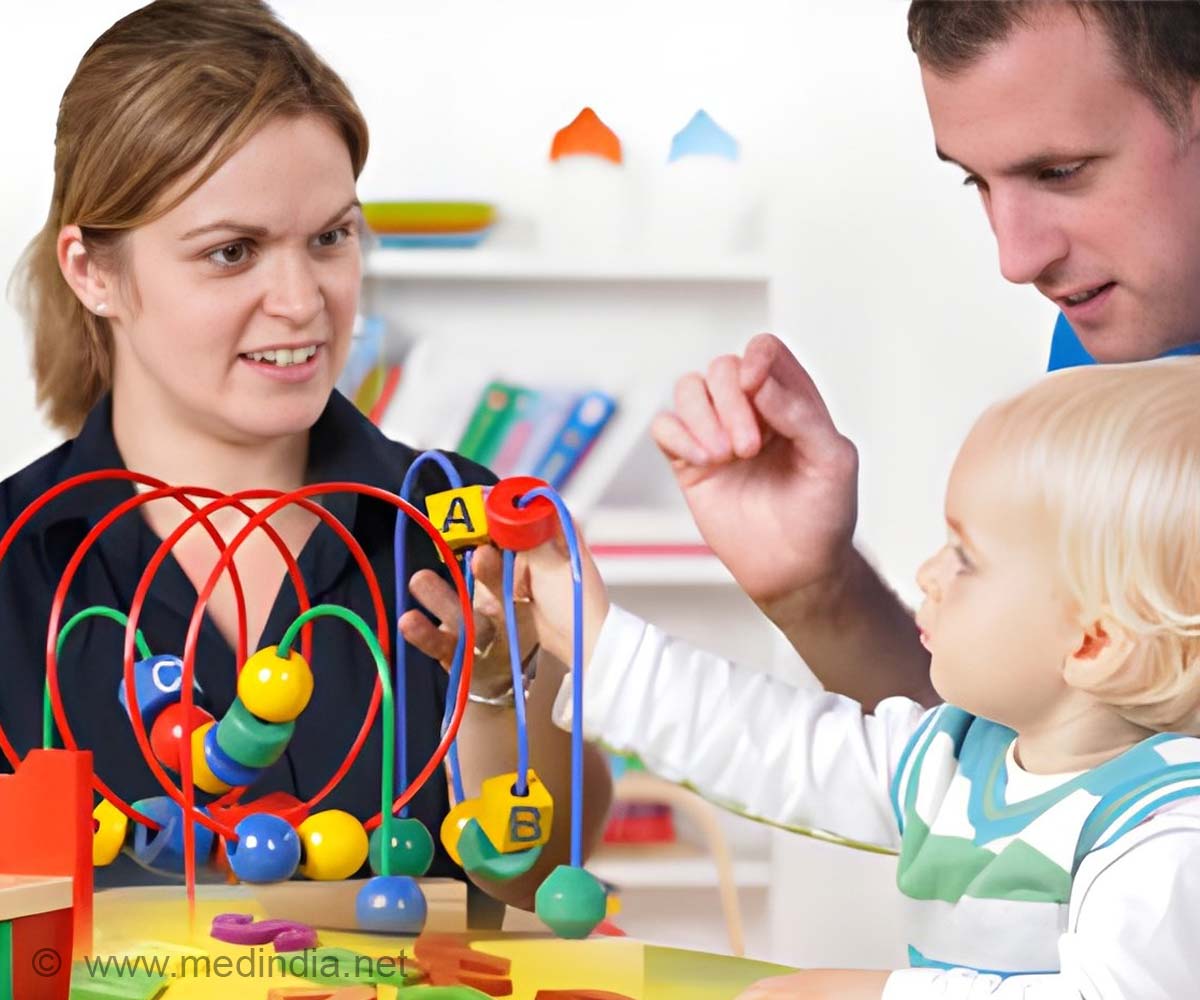Parents used less content-specific words when playing with traditional toys with their infants than when playing with books.

‘Conversational turns during play teach children language. Therefore, parents much engage themselves during playtime with infants to develop the child’s verbal skills.’





Participants were given three sets of toys: electronic toys (a baby laptop, a talking farm and a baby cell phone); traditional toys (chunky wooden puzzle, shape-sorter and rubber blocks with pictures); and five board books with farm animal, shape or color themes.They found that while playing with electronic toys there were fewer adult words used, fewer conversational turns with verbal back-and-forth, fewer parental responses and less production of content-specific words than when playing with traditional toys or books.
The study showed that parents also produced fewer words during play with traditional toys than while playing with books with infants. Parents also used less content-specific words when playing with traditional toys with their infants than when playing with books.
Researchers concluded, "Any digital enhancement should serve a clear purpose to engage the child not only with the toy/app, but also transfer that engagement to others and the world around them to make what they learned meaningful and generalizable. Digital features have enormous potential to engage children in play - particularly children with a higher sensory threshold - but it is important the child not get stuck in the toy/app's closed loop to the exclusion of real-world engagement. Bells and whistles may sell toys, but they also can detract value.”
Source-Medindia









